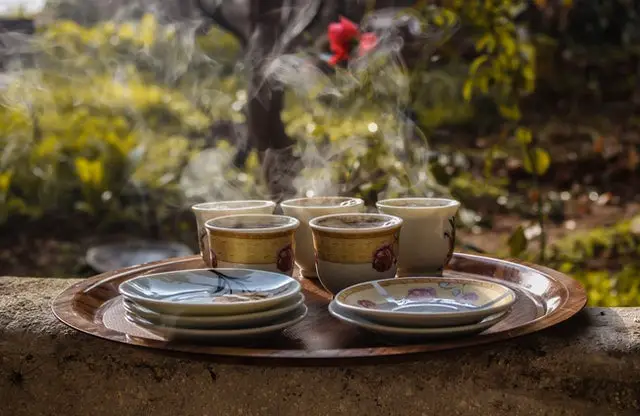
Although black and green teas have been at the forefront of the market, white tea has been steadily gaining ground over the last few years. Its delicate aroma and flavor are often more palatable, particularly to people who don’t appreciate the taste of stronger teas.
However, it is precisely this mild flavor and color that has led some people to believe that white tea doesn’t have caffeine. In fact, many people have been making switch to reduce their consumption of the stimulant. Before you buy into this, though, it is important to first thoroughly research the question, “does white tea have caffeine”
Contents
Despite popular claims, white tea does contain caffeine. White tea is derived from camellia sinensis, the same plant as all other caffeinated teas like green and black. Thus, this tea shares many similar properties with other true teas.
Nevertheless, white tea does tend to have a lower quantity, making it the lowest caffeine tea. This is why some people assume that it is caffeine free. The exact content, though, can differ quite a bit – this is true for even the best white tea.

So, just how much difference is there between white, green, and black tea as far as caffeine content goes? The quantity is as follows:
As you can see, there is quite a bit of discrepancy in the caffeine values for white tea – including organic white tea caffeine content. This is because the actual content depends on a number of factors. This includes the type of white tea, how it was grown and harvested, processing method, and leaf size.
Thus, if you were wondering does white peony tea have caffeine, the answer is: yes. Once again, though, it can be tricky to distinguish just how much a particular batch has.
Furthermore, the manner in which the tea is steeped can also alter the caffeine content in a cup. For instance, if the white tea leaves are steeped in very hot water, then more caffeine will be extracted. In a similar fashion, if the leaves are steeped for a longer period of time, the same effect can be seen.
Related Article
Caffeine in Tea: Understanding Content, Variation, and More!
Considering the uncertainty, is it possible to discover how much caffeine is in your white tea? Well, your best bet would be to check with your manufacturer. Most brands will test their batch to determine this value. And, particularly with good brands, the quality should remain consistent.
If you are getting the tea from an independent supplier, however, the answer may not be as straightforward. In these instances, the content can be very low or on par with green and black tea.

If you enjoy the taste of white tea but would also like to reduce your caffeine consumption, here is what you can do:
Decaf teas undergo a process where most of the caffeine is removed. Due to this, decaf white tea is your best option to lower your intake. Still, decaf white tea isn't entirely free of caffeine. There still may be trace amounts. You should also remember that caffeine values among decaf teas can vary quite a bit as well.
Thus, you should always do your research before selecting this kind of tea. Take a look at each brand that you want to buy and choose the lowest possible value. Make sure to ensure that these values are lower than those reported for regular white tea.
You will often hear white tea being referred to as “delicate”. This is because it is less oxidized. As a result, the tea must be steeped at a lower temperature. This allows the flavors, caffeine, etc. to be extracted more slowly, producing a better cup.
On average, white tea must be steeped in water that has been heated to 180 to 185°F. This is less than the boiling point. So, if you don’t have an electric kettle, it is important to take the water off the stove before it can begin to boil.
Steeping time can differ for smaller white tea leaves and larger leafier ones. The smaller tea leaves release their extracts more quickly. As such, they should only be steeped for 30 to 60 seconds. If you are using leafier ones, then you can steep for 4 to 5 minutes.
If you are trying to actively lower the caffeine content, though, you will need to steep the teas for a shorter period of time. In this instance, you may want to wait until the tea has reached the right flavor before removing the teabag or discarding the tea leaves.
This is what you need to know about the white tea and caffeine. It is clear now that many of the myths can be set aside. White tea, like other true teas, does contain caffeine. The only difference is that it contains less in some instances.
If you enjoyed this article, make sure to check out our other posts on our Pinterest page. We have plenty of fascinating information about tea.
